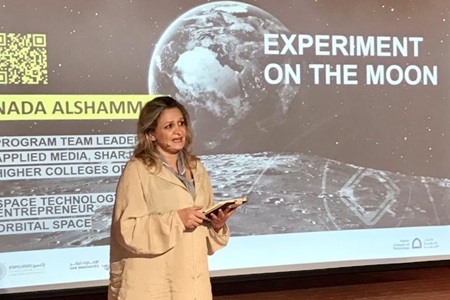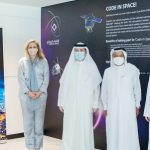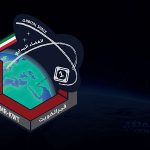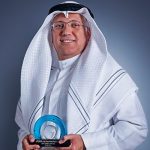The Lunaris Platform is a student-designed platform to be deployed from Astrobotic lander to touch the surface of the moon and investigate the abrasive impact of lunar regolith on different material samples.

Orbital Space has announced the Orbital Space Lunar Programme, marking a milestone in Arab space exploration history. This initiative will send a student-built experiment to the Moon, becoming the first privately funded lunar mission from the Arab world, led by Orbital Space. In partnership with Astrobotic, a space robotics and lunar logistics company, this mission represents a significant advancement in education and space exploration in the region.
The mission’s centrepiece, the Lunaris Platform, was chosen through a competitive global selection process judged by experts from Orbital Space, Mohammed Bin Rashid Space Centre (MBRSC), UAE Space Agency and Astrobotic. The winning experiment, created by students from AGH University of Science and Technology in Poland, will analyse interactions between lunar regolith and various materials used for making cables and connectors for future lunar missions.
The Lunaris Platform, a student-designed payload, will be deployed from an Astrobotic lander to investigate the abrasive impact of lunar regolith on different material samples. This project aims to enhance our understanding of lunar regolith interactions with materials for future lunar landers and habitats, while also inspiring educational engagement and preparing the next generation for extended human residence on the Moon.
Astrobotic will carry the Lunaris Platform aboard their third lunar mission using a Griffin-class lunar lander, with a target launch date no earlier than Q4 2026.
Through the Orbital Space Lunar Programme, Orbital Space is dedicated to nurturing young minds in the Arab world and globally. Initiatives such as the Lunar Mission Boot Camp aim to engage and educate future space innovators with practical involvement in lunar research.
Orbital Space continues to offer a variety of activities designed to inspire and educate future generations in space science. These include educational workshops and webinars through the Space Innovators Series, hands-on experiences in the Lunar Exploration Bootcamp, and public interaction opportunities like the ‘Send your message to the moon’ initiative.
Dr Bassam Alfeeli, General Manager, Orbital Space, commented: Orbital Space’s main goal is to encourage and empower students to develop, design and conduct scientific experiments or technology tests to be carried to the surface of the Moon. We have challenged students from around the world through a global competition to propose scientific experiments or technology tests for a lunar mission. We are enabling and supporting the winning team to design, build, deliver, and operate their own lunar payload. And while doing so, we are also increasing public awareness about the efforts to establish a sustainable human presence on the Moon. This lunar payload mission would not be possible without our key strategic partners, collaborators, and contributors including Astrobotic, AGH University, CRP Tech, and, AROBS Polska.
Professor Tadeusz Uhl, Director of the Space Technology Centre, AGH University of Krakow, said: We are committed to fostering an environment where our students can push the boundaries of space science and technology. This lunar mission represents the pinnacle of that commitment. It is not only a testament to their hard work and ingenuity but also a reflection of the collaborative and forward-thinking culture we cultivate. To support our students in this historic mission, AGH University has provided comprehensive resources, including access to our state-of-the-art research facilities, expert guidance from our faculties, and financial backing for mission-critical needs. Our partnerships with Orbital Space have been instrumental in equipping our students with the tools and knowledge necessary to achieve success in this ambitious venture.
This mission represents a significant milestone in international space collaboration and reinforces the UAE’s growing role as a leader in space exploration and education.















































































